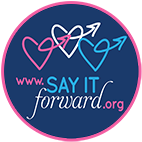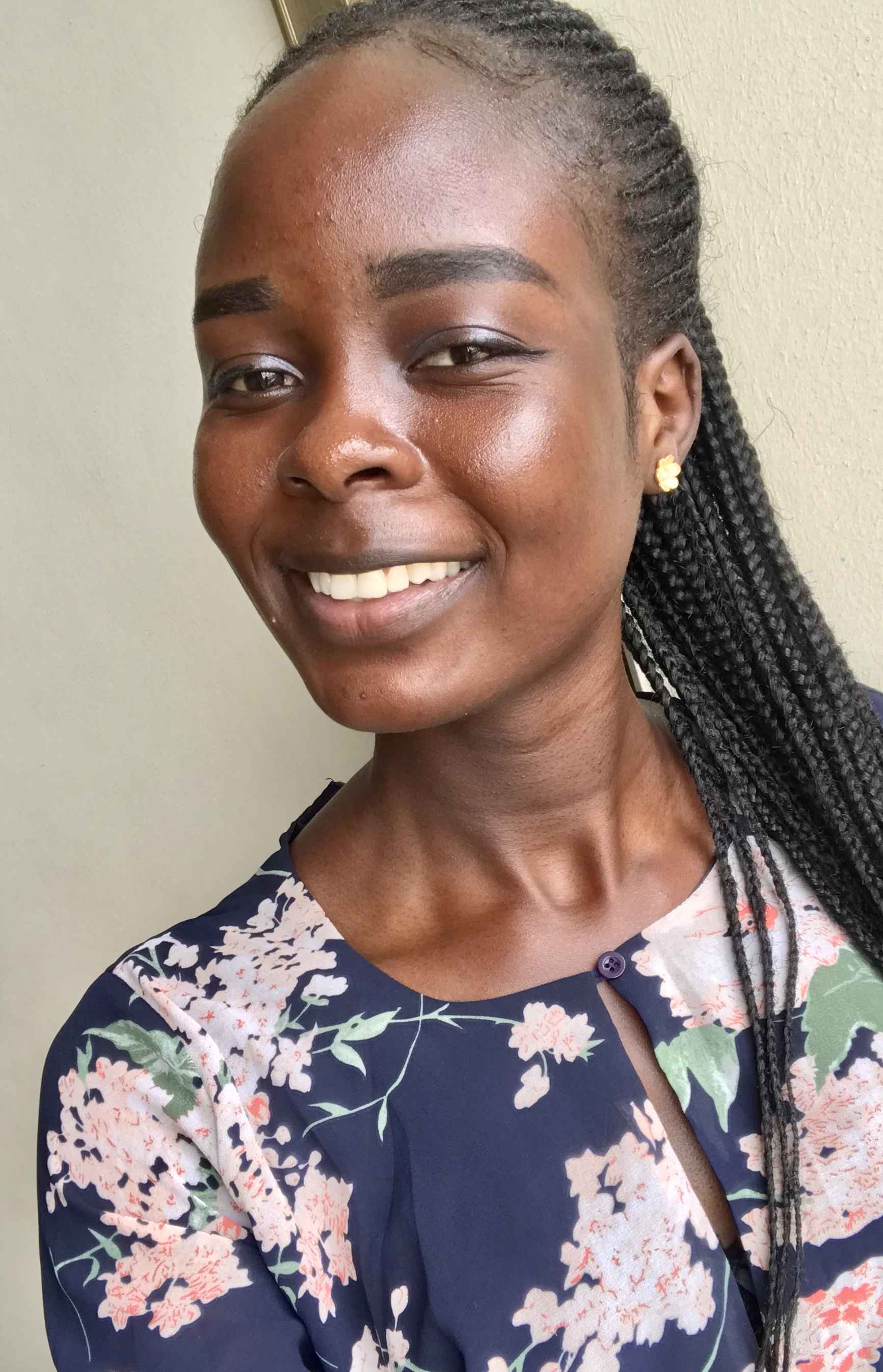Dedication: To the vulnerable women out there, to remember there’s light at the end of the tunnel.
Growing up, I’ve noticed that many people, especially men, think they are entitled to a lot from a woman. They think they have the right to look, to gaze with the most naked desire. They think they have the right to touch and take what they want. What few realize is that they take more than just their own gratification—they take a woman’s power from her, the power of her own body, and of her own life. When it happened to me, my innocence and childhood were taken away, obliterating a peaceful naiveté that I could never get back. It took me years to regain that inner power and strength.
I was born in 1999 in Nairobi, Kenya, as the second of five children. My father was a soldier on active duty, so he was gone most days of the year. My mom had to do the heavy-lifting when it came to raising us, and she tried her hardest to keep us happy. I considered us middle-class, but your idea and my idea of middle-class may differ. We always had a place to sleep and we attended school. By Kenyan standards, we were pretty well-off.
Still, there were times my father wasn’t sending home money and that brought financial difficulty to our family. The basic necessities of a home and school became harder to maintain. Our financial burden began to crush us when I was nine. It was so bad that we had to move in with a family friend for the next four years. My mom couldn’t work a conventional job since she had to keep an eye on my siblings and me, but there was a time that she sold bed sheets on the streets while us kids played nearby. I envied her resilience.
Living at the family friend’s house took from me an innocence I didn’t know I’d had until it was ripped from me. By the time I was 11, puberty was working its magic and changing my body in ways I was still trying to understand. I was in a very vulnerable state.
Unfortunately, a frequent visitor to the house took advantage of that vulnerability. He would approach me to “talk,” but talking always led to him reaching down my shirt or in my pants. Every time he tried, I instinctively jumped away and ran out of the room. I had no concept of anything sexual. I just knew that I didn’t like when he tried to touch me. I knew it was wrong. I tried to get him to stop, but these unwanted advances went on for the next few years, and I had to live on high alert in that house. He almost raped me a few times, but I always escaped. That loss of innocence before I could really understand what was happening broke me. I began to hate myself.
Home wasn’t the only place I experienced unwanted affections. I couldn’t walk down the street without a man pausing to stare at my budding breasts or newly developed curves. Men the same age as my father used to approach me with a smug look on their face, as if their flirting with me was somehow a compliment. I was an object to them; a new lunch special on the menu.
At school, two boys once invited me to meet them for lunch. Little did I know that it was just a ploy so they could try to assault me to meet their horrid, primal needs. I never told anyone about the assaults, thinking no one would understand or believe me. Friends and family always said to me, “You should be a model” and “they’re just complimenting you.” But ogling eyes didn’t make me feel good. In fact, they made me squirm with discomfort. I hated myself and my body. It felt like it was working against me. I thought that if I didn’t look like myself, guys wouldn’t be trying to molest me. I thought it was all my fault, and I fell into a deep depression.
At the young, impressionable age of 13, I attempted suicide. Thankfully, I was not successful, but my family scolded me and insisted I never try something like that again. So, I sat within my misery, hating myself in every way as I tried to traverse the hormonal minefield that is being a teenager.
As I got older, school fees became pricier and even harder to handle on my mom’s minimal budget. At 14, I started working any job I could find to help cover the costs. In the following years, I tried to stay away from people. When I wasn’t in school or working, I was curled up by myself somewhere with a good book to keep me occupied. Those books are what kept me sane.
I graduated when I was 17 and then came the question of “what’s next?” To my dismay, graduation came at a time when a financial crisis was hitting Kenya, making jobs, food, and housing scarce. My family was struggling so badly that our landlord threatened to kick us out multiple times. As hard as it was to admit, I knew I had no chance of finding success in my home country. I knew I needed to find a way to leave.
In 2017, I began hearing whispers of jobs in South Sudan—how it was a rich country full of promise and dreams. After obtaining a visa for Uganda to enter South Sudan, I entered the country with hope in my eyes and $50 in my pocket. Left behind me was all my trauma in Kenya. I had a chance at a new beginning.
Coming to South Sudan, I had no idea what I was going to do for money, but I was determined to find something. I stumbled across an ad for a beauty pageant and thought back to all the times I’d been told I could be a model. Desperate for a way to make money, I entered the contest. I watched as girls my age strutted across the stage, confidence emanating from their pores. They carried themselves with a power I’d never seen before. They walked without fear of judgement, and it was refreshing. It gave me the courage to walk like that too.
I wound up winning runner-up, and I was completely baffled. I stood on stage surrounded by thunderous applause and smiling faces. Backstage, fellow contestants congratulated me and bombarded me with genuine compliments. I was told all the things I’d wish I heard growing up. That’s when I came to a realization. Why had I hated myself and my body because of how others viewed it? In the midst of honest praise, I realized the illusion I held about myself wasn’t right. I shouldn’t have let those who objectify my body control the narrative of my life. I hold that power. I decided to let how others viewed me empower me instead.
Competing in beauty pageants gave me a confidence I’d never felt before, and each time I walked onto the stage, I knew in my heart that I had found my path. After many more competitions, I finally won first place. The winner of each pageant got money to fund a project of their choosing. I knew exactly what I wanted to do. I wanted to help little girls who were like me. I wanted to help them feel empowered and know they’re not alone. I wanted them in a world still drowning in misogyny to love themselves and not feel inferior.
To do this, I started arranging appearances in local schools where I could give talks to the youth and help break the terrible cycle. In many African countries, mental health and reporting sexual assault are not talked about and are most certainly not a priority. I wanted to change that. I started by simply telling little girls my story and what I’d gone through. I hope by sharing my trauma, it will keep other girls from facing the same trauma and suffering in silence. Speaking my truth has helped me come to heal myself, and I think I’m really getting through to the kids I talk to.
When I look back on the trauma I endured and all the self-hatred I felt growing up, I wish I could go back and help my younger self, but one cannot change the past, nor can they remain in the past for too long. Doing so keeps you from moving forward into a better future. Through my project, I feel even more confident in saying that no one is alone. There is dark in all of our lives, but we must not let it destroy us. Life is worth living, and even in the darkest moments, we must look around and see the positivity around us. The traumas in my past broke me, but they also shaped me into a person strong enough to take that hardship and make it into something constructive.

